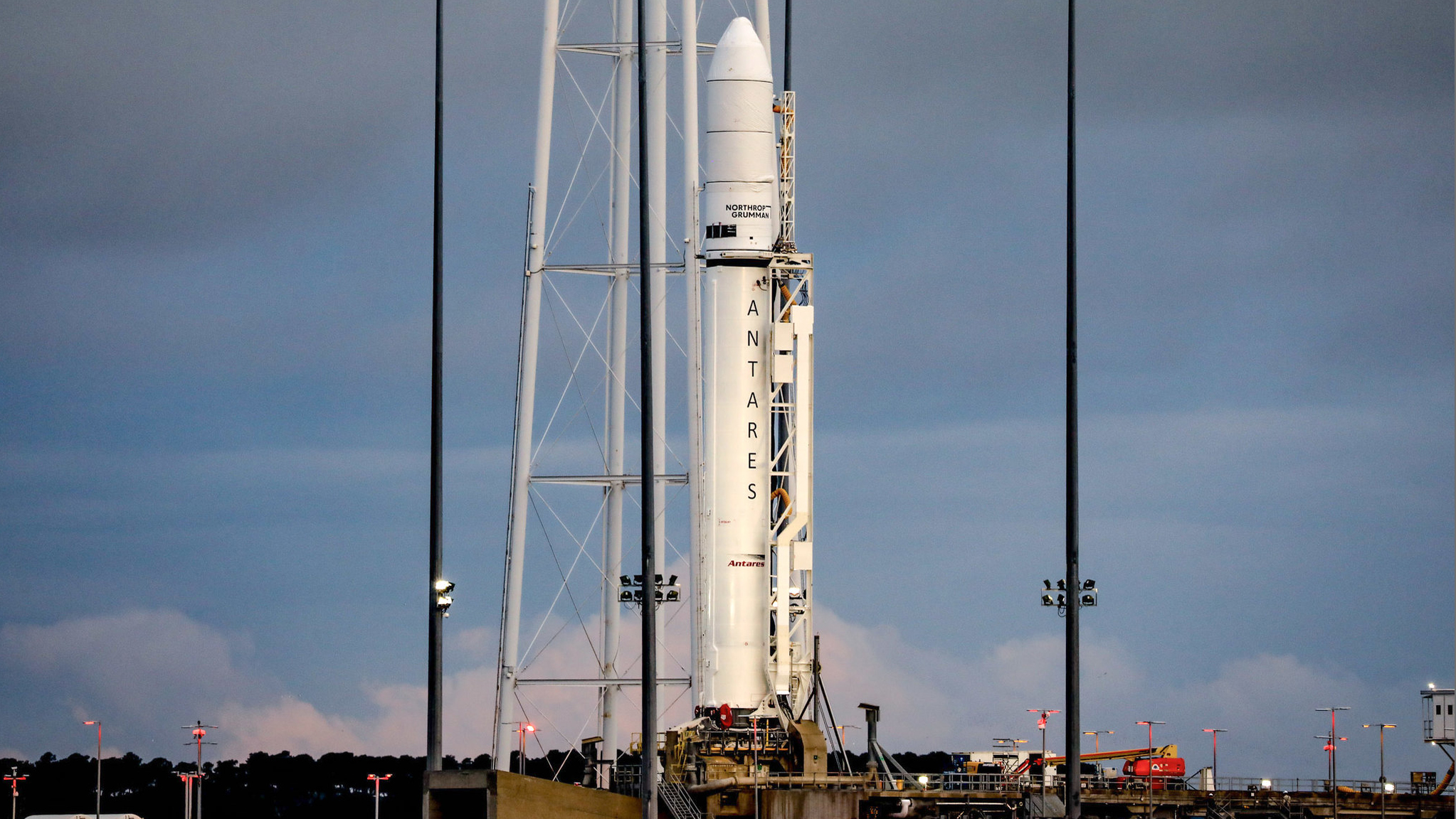Northrop Grumman's Antares rocket is about to get an all-American upgrade with the help of Firefly Aerospace. The two U. S.
space companies announced Monday (Aug. 8) they are working together to build a new first stage for Northrop Grumman's Antares rocket while also developing a brand-new medium-lift booster for future launches. The partnership means Northrop Grumman will replace the current Antares rocket, which is built in Ukraine and powered by Russian engines, with a more powerful version (called the Antares 330) that can carry heavier payloads.
The move removes Northrop Grumman's dependency on Ukraine and Russia for critical components of the Antares rocket, which the company uses to fly Cygnus cargo ship missions to the International Space Station for NASA. "Through our collaboration, we will first develop a fully domestic version of our Antares rocket, the Antares 330, for Cygnus space station commercial resupply services, followed by an entirely new medium class launch vehicle,” Scott Lehr, Northrop Grumman's vice president and general manager, launch and missile defense systems, said in a statement (opens in new tab) . Related: Northrop Grumman's Cygnus boosts International Space Station's orbit Ukraine's Yuzhnoye State Design Office and Yuzhmash Machine Building plant currently build the Antares first stage, with Russia providing RD-181 engines .
The supply for both components has been in doubt since Russia invaded Ukraine in February. The country has also halted all rocket engine sales with American companies after the U. S.
and other countries issued harsh sanctions on the country over its invasion. Northrop Grumman originally used refurbished Russian rocket engines originally developed for that country's N-1moon rocket in the 1960s, but switched to RD-181 engines after a launch explosion in 2014 . After Russian invaded Ukraine, Northrop Grumman said at the time that the company had enough engines and stages for two Antares rockets.
The first of those is scheduled to launch in October with the second expected to follow in 2023. Northrop Grumman will also buy three SpaceX Falcon 9 rocket launches to fly Cygnus to bridge the gap until the Antares 330 is ready, SpaceNews and Bloomberg reported (opens in new tab) . The Antares 330 rocket will feature a Firefly-built first stage powered by seven of that company's Miranda engines.
The upper stage will continue to use Northrop's Castor 30XL solid-fueled motor. The upgraded rocket could be ready by 2024, according to SpaceNews (opens in new tab) , and will allow Antares to launch payloads of up to 23,000 pounds (10,500 kilograms) into orbit, compared to its current 17,800-pound (8,100 kg) capacity. That means it could deliver up to 11,000 (5,000 kg) more cargo to the station on Cygnus, SpaceNews reported (opens in new tab) .
— Cygnus cargo ship arrives at ISS with biggest NASA haul ever — Private Antares Rocket & Cygnus Spacecraft Explained (Infographic) — Cygnus constellation: Facts about the swan Northrop Grumman and Firefly did not release financial details of their agreement for the Antares 330, nor did either company offer details on what the new medium-lift rocket they will build will be like. Firefly is developing its own medium-lift rocket, called Beta, after testing its Alpha rocket. Northrop Grumman is one of several commercial companies tapped by NASA to deliver cargo to the International Space Station.
SpaceX and Sierra Nevada Space Systems are the others. Northrop's Cygnus cargo ships have been hauling supplies to the space station since 2013. Firefly, meanwhile, is developing its rockets as well as Space Utility Vehicle for use in orbit and a moon lander called the Blue Ghost .
"Firefly prides itself on being a disrupter in the new space industry and collaborating with a proven space pioneer like Northrop Grumman will help us continue that disruption," Firefly interim CEO Peter Schumacher said in a statement (opens in new tab) . Email Tariq Malik at tmalik@space. com (opens in new tab) or follow him @tariqjmalik (opens in new tab) .
Follow us @Spacedotcom (opens in new tab) , Fa c ebook (opens in new tab) and Instagram (opens in new tab) . .

